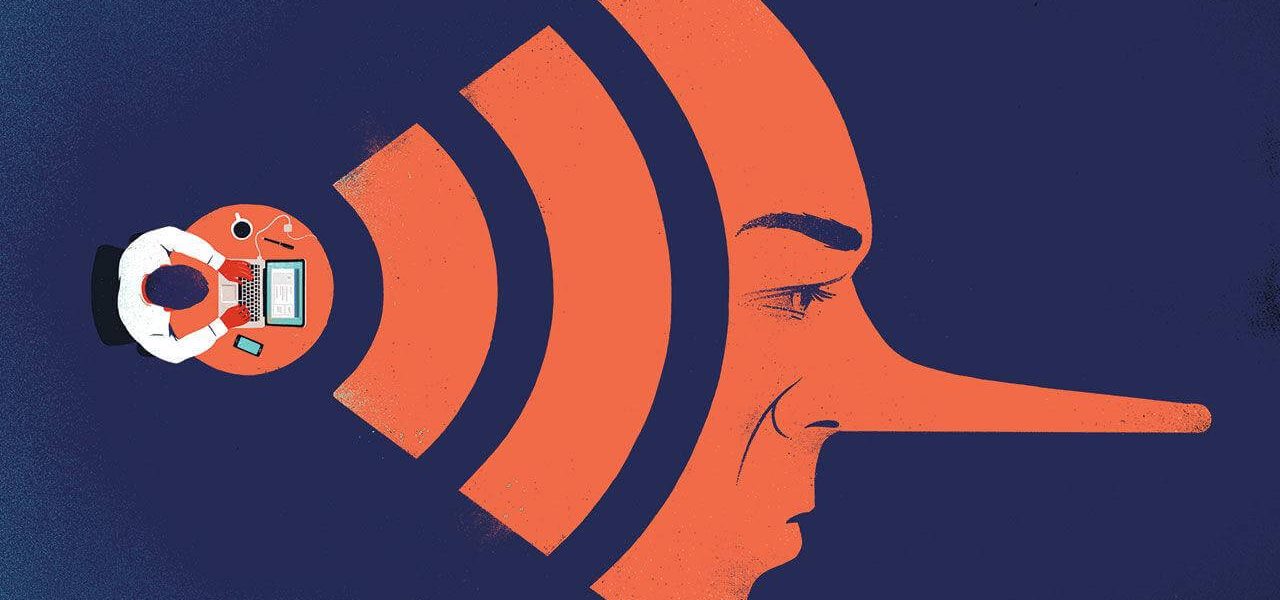In a digital age where information flows rapidly and extensively, the proliferation of Disinformation and fake news has emerged as a formidable challenge to the fabric of our society. These disruptive forces, often disseminated through online platforms, pose a significant threat to democracy and public discourse. In this article, we delve into the intricate web of Disinformation and fake news, exploring their far-reaching effects on our democratic processes and the quality of public discourse.
The Ubiquity of Disinformation
Disinformation, the intentional spread of false or misleading information, has become alarmingly prevalent in recent years. It transcends geographical boundaries, political affiliations, and cultural contexts. The ease with which false narratives can be propagated online has exacerbated the issue, making it a global concern.
Undermining Trust in Media
One of the most profound impacts of Disinformation is its erosion of trust in traditional media outlets. With the rise of alternative news sources on social media platforms, individuals are exposed to many conflicting narratives, making it increasingly difficult to discern fact from fiction. This erosion of trust in established media institutions has far-reaching consequences for the credibility of journalism and, by extension, the public’s faith in democratic processes.
Polarization and Division
Disinformation thrives in an environment of polarized opinions. By exploiting existing social divisions, purveyors of fake news can further entrench ideological differences. The resulting polarization weakens the bonds of social cohesion and impedes constructive dialogue and compromise – essential elements of a functioning democracy.
Threats to Electoral Integrity
In the realm of politics, Disinformation poses a significant threat to electoral integrity. False information about candidates, voting procedures, or campaign strategies can influence voter behavior and undermine the legitimacy of elections. In doing so, it threatens the very foundation of democratic governance.
The Consequences for Public Discourse
Beyond its impact on democracy, Disinformation also exacts a toll on the quality of public discourse. Healthy public discourse is the lifeblood of a functioning democracy, allowing citizens to engage in informed discussions and make collective decisions. Disinformation disrupts this process in several ways.
Echo Chambers
Social media algorithms often prioritize content aligning with a user’s beliefs. This phenomenon, known as the “filter bubble,” creates echo chambers where individuals are only exposed to information confirming their preconceived notions. Consequently, people become more entrenched in their views and less open to diverse perspectives, hindering productive dialogue.
Drowning Out Legitimate Voices
The deluge of Disinformation can drown out legitimate voices in public discourse. Credible sources need help to gain attention and provide balanced, well-reasoned perspectives in an environment saturated with sensationalism and falsehoods.
Diminished Civic Engagement
As citizens grapple with an overwhelming influx of false information, their trust in the democratic process wanes. This disillusionment can reduce civic engagement, with individuals feeling disheartened and disempowered. In the long term, this can have dire consequences for the vitality of democratic societies.

Combating Disinformation and Fake News
Addressing the challenges of Disinformation and fake news requires a multifaceted approach involving various stakeholders, including governments, tech companies, and citizens.
Media Literacy
Promoting media literacy is paramount in empowering individuals to discern credible sources from unreliable ones. Educational initiatives that teach critical thinking skills and fact-checking techniques can go a long way in equipping people to navigate the information landscape effectively.
Platform Responsibility
Social media platforms must also take responsibility for curbing the spread of Disinformation. Implementing robust content moderation policies, fact-checking mechanisms, and transparency in algorithms can help mitigate the dissemination of false information.
Government Regulation
Governments play a role in crafting policies that address Disinformation while safeguarding free speech. Striking the right balance between regulation and protection of civil liberties is a complex but necessary endeavor.
Conclusion
In conclusion, Disinformation and fake news are not merely nuisances in the digital age; they are threats to the foundations of democracy and public discourse. Their corrosive effects on trust, polarization, and civic engagement necessitate collective action from all sectors of society. By promoting media literacy, holding tech companies accountable, and crafting responsible regulations, we can work toward a future where the information landscape is characterized by accuracy, integrity, and a commitment to democratic values.
